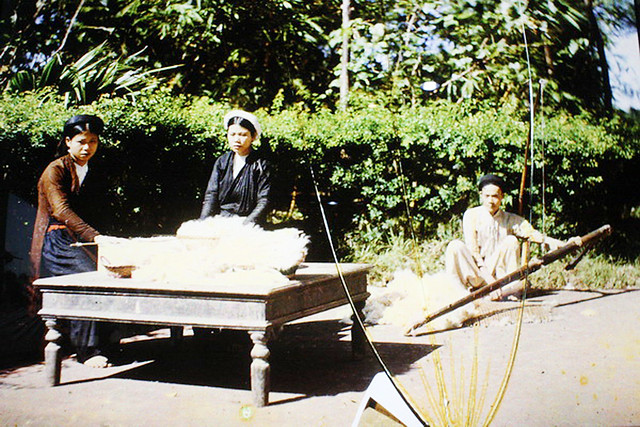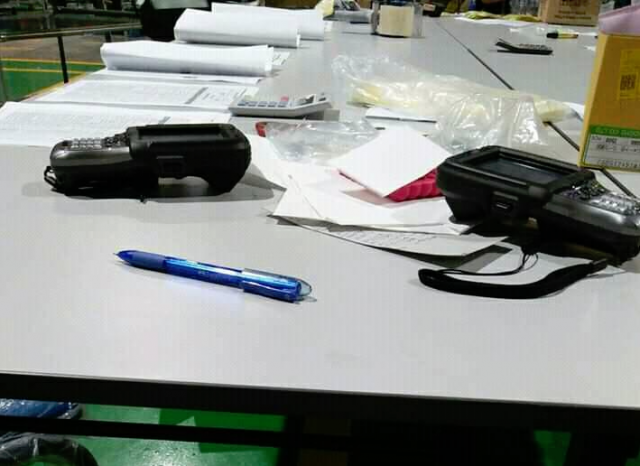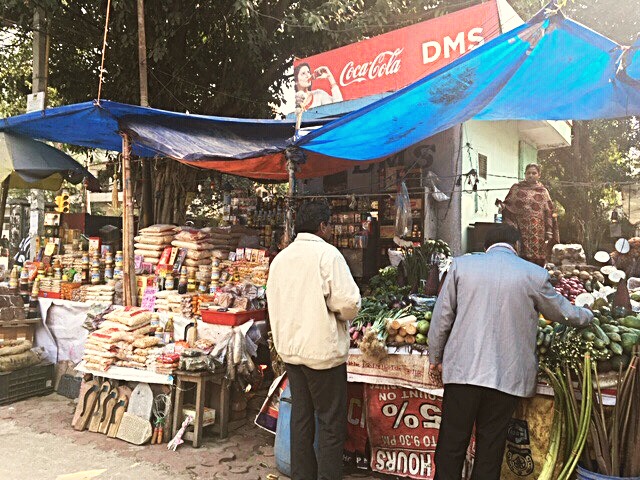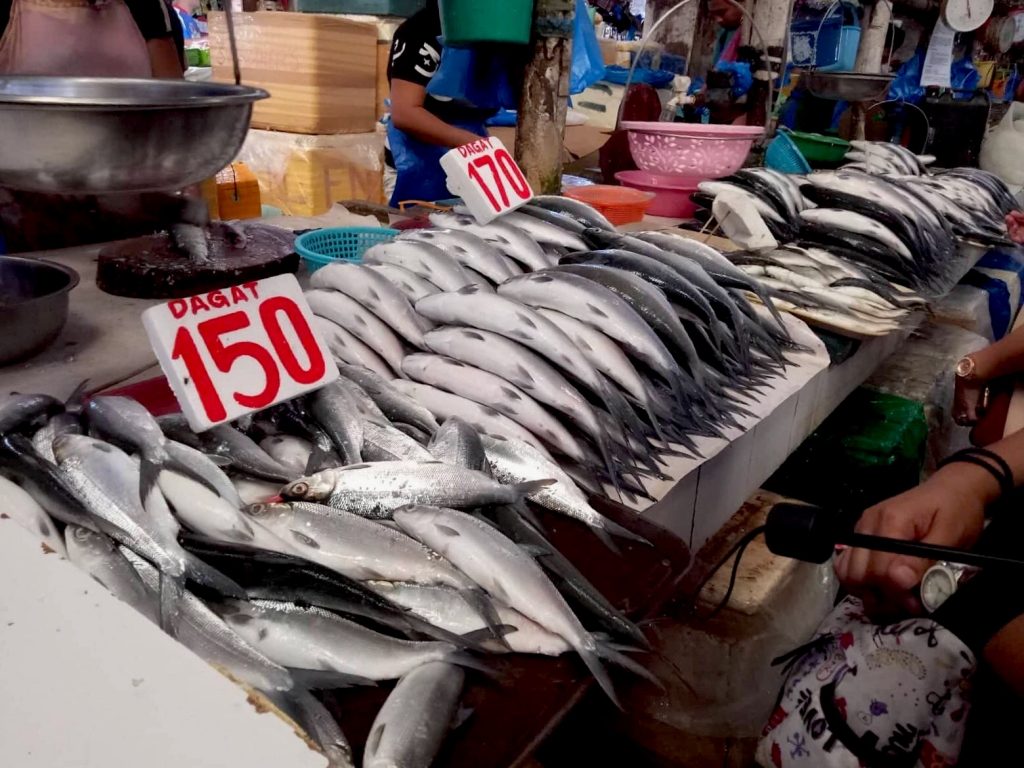một cây vải đổi lấy mười vuông thóc || one bolt of fabric for ten vuông of unhusked rice

April 24, 2019
The following chapter is excerpted from the forthcoming novel of Vietnamese writer Nguyễn Thanh Hiện, translated by Nguyễn Hoàng Quyên.
Jump down to read the English translation here.
có một khúc sử xem ra có vẻ hơi kỳ cục, nếu không nói là hơi lạ đối với thời thế giới phẳng, nhưng quả tình là rất cảm động, bỡi nó xảy ra giữa lúc bao nhiêu xứ sở trên mặt đất đang vào thời cực thịnh của nền sản xuất hàng hóa, thì vào lúc đó, cha tôi cuốc đất trồng bông, và mẹ tôi dệt vải
một ngày tháng sáu, cây bông vải bắt đầu nở rộ ngoài vườn, đã hơn nửa năm người khách thương đến nhà đặt mua vải với phương thức đổi thóc, một cây vải đổi lấy mười vuông thóc, mẹ hẹn sang tháng tám, lời hẹn như sự khẳng định cho một sự thể vẫn còn nằm trong những cái có thể, tháng sáu, cây bông vải đã nở trắng ngoài vườn, nhưng vẫn còn là những cái có thể
không phải là tôi hoài cổ khi kể lại cảnh trồng bông dệt vải, nhưng vì đó là một khúc sử không thể không nhắc lại, năm hôm một phiên chợ làng, tôi theo mẹ ra chợ làng bán vải, ai về dưới giã hồi hôm, những dặm dài, đôi chân trần tứa máu, để sáng bữa chợ phiên của làng có gánh cá gánh tôm những người chạy nò mang lại [chạy nò là cách gọi những lái thương đi mua cá biển dưới giã đem về bán ở chợ quê] chợ làng đối với thời niên thiếu của tôi là một thế giới rộng lớn, tôi vui sướng theo mẹ bước vào cái thế giới rộng lớn ấy, và cảm thấy như không có gì có thể trói buộc tôi, ở chợ làng, tôi thấy có cả những người bán gạo bán rau và bán mắm, có cả những người bán trứng bán thịt bán nong nia thúng mủng, chỉ trong chốc lát cây vải khún của mẹ tôi đã bán hết, cá tôm của những người chạy nò cũng bán hết, gạo thóc, khoai củ, nong nia thúng mủng cũng bán hết, một khúc sử mà hàng hóa trong một buổi chợ làng chỉ trao đổi qua lại giữa những người họp chợ, chị bán tôm cá bán xong tôm cá mang tiền đến mua vải của mẹ tôi, và mẹ tôi bán xong vải mang tiền mua trứng mua thịt của chị bán trứng bán thịt
một ngày tháng sáu, cây bông vải đang nở rộ ngoài vườn, tôi cũng bắt đầu nghĩ đến việc bắn bông, kéo sợi, thế giới cứ xảy ra theo cách của nó, còn tôi thì theo cách của tôi, tôi bắt đầu nghĩ đến ngày bông vải chín ở ngoài vườn, và sau đó thì lũ con gái mười lăm mười sáu ở trong làng kéo đến giúp mẹ tôi bắn bông, kéo sợi, ở làng tôi lúc bấy giờ dường chỉ mỗi nhà tôi trồng bông dệt vải [tôi chỉ còn nhớ loáng thoáng thế] trồng cây bông vải cho có trái đã khó, còn dệt vải thì phải có nghề, mẹ tôi đã được bà ngoại tôi truyền cho nghề dệt vải sợi, tháng sáu, tôi nghĩ đến lúc tôi cùng với lũ con gái mười lăm mười sáu trắng những đêm bắn bông kéo sợi, tôi cũng đã đến tuổi thường nghe lòng mình rạo rực chuyện yêu đương
cái cách cha tôi, một người am hiểu sách vở kim cổ, cầm cây rựa chuốt con thoi dệt cho mẹ tôi là một cách tuyên bố với thế giới rằng những kiến thức sách vở đọc được chẳng là gì cả đối với tri thức nhân loại, người nào đó là thật tài tình khi nghĩ ra được cái khung dệt bằng tay, đương sợi cũng bằng tay, đương sợi bằng con thoi, như cách người ta đương nong nia, để sau đó cho ra những tấm vải mịn màng, những tấm vải làm từ trái bông vải, cái cách cha tôi cầm cây rựa đẽo gọt khúc gỗ lồng mức cho ra hình thù con thoi, rồi cầm lấy cây đục, gõ, đục, ngắm nghía, để hoàn tất công đoạn cuối của một con thoi dệt, là một cách tuyên bố với mọi người rằng, ngoài việc đọc sách, ông còn có thể làm công việc một anh thợ mộc chế tác các chi tiết cho một khung cửi dệt, nói tóm lại, trước sau cha tôi vẫn là một người thông chữ nghĩa cầm cày trên ruộng
mẹ tôi ngồi lên khung cửi dệt, đạp thử, tôi cứ mường tượng đến lúc những tấm vải dệt xong được cuộn thành những cuộn tròn trắng muốt, những cuộn vải khún [tên gọi thứ vải làm bằng trái bông vải] cha tôi hỏi khung dệt chạy có tốt không, mẹ tôi nói chạy rất tốt, tôi lại mường tượng ngày theo mẹ ra chợ làng bán vải
một ngày tháng sáu, cây bông vải vẫn đang nở rộ ngoài vườn, nhưng cơn mưa mùa hạ như một tai họa bất ngờ đã ập xuống, trái bông vải rụng trắng vườn, cha tôi ngồi trong nhà nhìn mưa, những cơn mưa gắn liền với cuộc sống nhà tôi, cha tôi cứ lặng đi, mẹ tôi cũng cứ lặng đi, tối hôm đó cả nhà tôi thức trắng
một vụ mùa được thóc, một bữa cơm có đủ dưỡng chất…có thể là khó thể xảy ra, hoặc chẳng thể nào xảy ra, nhưng những thứ đó, những cái có thể, là thuộc về những nỗi niềm của cha mẹ tôi
there was a segment of history that seemed a little strange, if not absolutely bizarre for the flat era of the world, but it was poignant nonetheless, while many places on earth were thriving on commodity production, during this segment of history, my father tilled soil to grow cotton, and my mother wove fabrics
one day in june, the cotton plants were bursting open in the garden, it had been more than half a year since the merchant came to buy fabric and paid in rice, one bolt of fabric for ten vuông of unhusked rice, my mother promised him it would be ready by august, the promise secured a possibility: june, the cotton plants had bloomed white all over the garden, but a possibility remained a possibility
i am not being nostalgic about the scene of growing and weaving cotton, but it’s a segment of history that cannot go unmentioned, a village market session was on every five days, i followed my mother to the village market to sell fabric, the one who returns to giã birthsoil, long miles, bleeding bare feet, the village market session was ready in the morning with stalls of fish and stalls of shrimp carried by the mercantile nò operators who bought sea catches from the coast of giã then resold them in the village markets, the village market was a big world during my teenage years, i was overjoyed to follow my mother to that big world, nothing could tie me down i felt, in the village market, i saw people who sold rice sold vegetables sold fish sauce, people who sold eggs sold meat sold winnowing baskets sold panniers, after only a short while my mother’s bolt of khún fabric had already sold out, the fish and shrimp of the nò operators had also sold out, the rice, legumes, winnowing baskets and panniers all sold out, a segment of history in which goods in a village market session were simply exchanged among marketeers, the lady who sold shrimp and fish finished selling shrimp and fish and brought the cash over to buy fabric from my mother, then my mother finished selling fabric and brought the cash over to buy eggs and meat from the lady who sold eggs and meat
one day in june, the cotton bolls were bursting open in the garden, i was thinking about the task of separating the cotton from its seeds and spinning it, the world was unfurling in its own way and i was unfurling in mine, thinking about the day the cotton blooms would ripen in the garden and the village girls, around fifteen or sixteen years old, would come over to help my mother remove the seeds and spin the cotton, in my village at that time [according to my vague memory] it seemed only my family grew and spun cotton, it was hard enough to nourish the cotton plants until the day their blooms came, but weaving required serious craft, my mother had learned from my grandmother, it was june, i was thinking about myself and the fifteen or sixteen-year-old girls on nights of removing cotton seeds and spinning together, i was reaching that age when romance frequently fluttered in the heart
the way my father, someone who read all sorts of books ancient and new, used the machete to sharpen the weaving shuttle for my mother was a declaration to the world that erudite knowledge could hardly compare to physical knowledge, it was a stroke of genius when someone invented the loom and shuttle so that humans could weave by hand, the same way people wove the winnowing baskets by hand, sheets of smooth fabric were then created, sheets made from cotton blooms, the way my father used the machete and sculpted a trunk of wrightia wood into a shuttle, then used the chisel to chip, to carve, to behold, to complete the last phase of making a weaving shuttle, was a declaration to everyone that besides reading books, he was capable of working as a carpenter on every single detail of the loom, in short, through and through, my father was a lettered man who plowed the fields
my mother sat at the loom, attempting to control the treadles with her feet, i kept dreaming of the moment when the sheet of fabric would be woven into stark white rolls, rolls of khún fabric [the name of the fabric made from cotton blooms], my father asked if the loom was running well, my mother said very well, i again dreamed of the day i would follow my mother to the village market and sell fabric
one day in june, the cotton bolls still bursting open in the garden, but a summer rain, like a catastrophe, came crashing down, the cotton blooms dropped, dyed the ground a thorough white, my father inside, watching the rain, the rain so closely attached to our livelihood, my father turning silent, my mother also turning silent, that day my whole family stayed up all night
a fine harvest of rice, a nutritional meal…perhaps hardly possible, perhaps impossible, those things, the possibilities, if any, resided within the unspoken sentiments and griefs of my parents



